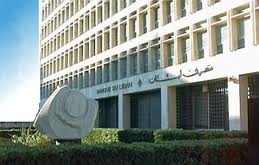By Ghassan Karam
What is the single most important rationale for government? We agree to have a government and we endow it with many forms of power in the hope that it will maintain law and order, create even leveled fields in all areas, protect our intrinsic rights of congregation, freedom of speech and freedom of belief provided that its collective policies will produce a higher level of welfare than would have existed without it. Government appears when the members of society delegate to it the power to monopolize decision making in an effort to create an environment that is conducive to economic prosperity.
One can easily conclude from the above that ultimately it is the question of economic organization that determines the shape of society. Marx actually went further than this by stating that “history of society is a history of class struggle”. One does not have to be a Marxist to share the view that economic issues and the relations of production form the base upon which society is built.
If economics is so important then it behooves the Lebanese politicians to pay closer attention to the implications of the policies that they have subjected the country to over the past two decades. If they do not then the impending economic disaster will sweep away the current corrupt and inequitable system at a great cost to the lives of the ordinary citizen.
The world is rapidly coming to the realization that the monopoly power of government to borrow and spend by running deficits is not without its limits. Keynesian economics popularized the notion of an activist role for macroeconomics but it did not support and encourage profligate spending. Government has an important role to play whenever the economic Gods “conspire” to generate a level of output that is below the level of full employment but that does not mean that government can buy its way into prosperity through borrowing, inefficient spending, corrupt bureaucracies and badly thought investment projects. Those who thought that it is possible “to have a slice of cake and eat it too” have found out to their dismay that the price of excess and abuse is very high indeed. Just ask Argentina, Venezuela, Greece, Portugal and Ireland among others.
It is becoming increasingly clear that Lebanon will most likely be among the others although you would not know it from the Lebanese politicians or even the Lebanese press. What makes the Lebanese so sure that they are immune when they have violated practically every major macroeconomic metric? It is true that the civil war was costly both in blood and treasure. What civil war isn’t? But to feel that all what had to be done was borrow and spend without addressing the structural constraints has created one of the highest debt/GDP ratios in the world. A high debt ratio by itself might not be enough to indicate imminent problems but when that metric is added to high labour redundancies, dependence on capital inflows from expatriates attracted by artificially high interest rates coupled with an inability to service the national debt without additional borrowing then the outlook starts to become dire.
International capital markets are constantly evaluating the degree of risk that is to be associated with each of the different sovereign bond issues. The most common such judgment is seen through what is commonly referred to as CDS, credit default swap. A CDS is essentially an insurance premium that the buyer of a risky issue is willing to pay to guarantee the principal involved. All of this dry and technical jargon is important because the professional global money markets have assigned to Lebanese debt the 7th highest CDS premium (the higher the premium the riskier the debt) Yes you heard it right, only six countries in the world have riskier debt than Lebanon and yet no one either at the Parliament, the Cabinet or MSM is talking about this.
Lebanese politicians have, over the short life of this experiment called Lebanon, moved from one political crisis to the next without ever dealing with the root cause of what ails the country. This will not work in economics, not when Lebanon has chosen to use the international capital markets. Denial will only make things worse. The Lebanese national debt has entered a new era of growth both in absolute and in relative terms. There is no way of stopping this trend without taking the bitter pill of debt restructuring. Lebanon is not the US, Japan, Greece or Portugal. Each of these countries can and will adopt an austere fiscal policy to get out of the hole that indebtedness has created but Lebanon cannot do this since there is not that much to cut anyway and since Lebanon cannot borrow at very low interest rates. The Lebanese debt will only grow and its burden will increase until the whole edifice comes crumbling down like a house of cards that it is. The matter is simple really, it is impossible for the Lebanese economy to grow at a faster rate than that used to finance its debt given the size of the debt and the realistic potential of the economy. Lebanon will be forced to restructure its debt, the sooner that is done the less is the pain.
There is a moral dimension to this story. Those that are elderly have borrowed and possibly experienced some short term prosperity but they are leaving the future generation with an unsolvable problem that is reminiscent of Sisyphus. I pity the next generation.
Leave a Reply
You must be logged in to post a comment.